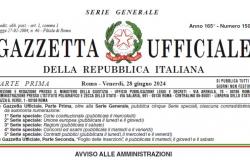The price of bills will not return to what it was before. The cost of energy has fallen to pre-crisis levels, forward indices – which “predict” the price for months and years to follow – are falling until 2027, yet for Italian consumers it is still impossible to find a fixed price electricity offer that reflects this trend. There is a decline, but it could be much greater. And the reason is to be found in spread applied by sellersi.e. the “gap” between the price at which they purchase energy and the price at which it is resold to the consumer.
According to an analysis by Billoo (application for checking electricity and gas invoices, which checks more than two thousand Italian bills every day and is preparing for a capital increase of 5 million euros), if historically the spread was between 5 and 7 euros on average per megawatt hour, today we are between 20 and 30 euros per megawatt hour. And until last March it was also double.
The trend of forward prices
The history of the spread
The spread – it must be said – in the fixed price has always played a guarantor role for energy operators: a way to remunerate the risk of price variations, due to unpredictable events such as wars, damage to infrastructure, pandemics. But today, when volatility is low and energy reserves are full, operators continue to fear that the imponderable could happen again. In short, after the outbreak of the war in Ukraine, there will never be a return to the previous situation. Even if spring marked a slight change of pace: “It is interesting to note – explains Giovanni Baroni, founder of Billoo – that the narrowing of spreads in recent months has been compensated by the increase in the price of the kilowatt hour. So, in the end, no good news for taxpayers’ pockets.”
The fear that it will happen again
Self the Moscow-Kiev conflict had ignited tensions in the national energy supply chain, causing spreads to skyrocket even beyond the average 70 euros per megawatt hour, the context of renewed “stability” should have turned back the clock on extra-profits. But evidently this was not the case.
Bills, towards the end of electricity protection: the answers to readers’ doubts
by Federico Formica
May 13, 2024
How come he makes it clear A2A Energia, which lets us know: “If until 2021 ours was considered an unprofitable activity, but essentially risk-free, from 2022 operators have had to realize that the risks, in reality, are certainly there”. It is no coincidence that during the most acute phase of the crisis, fixed price offers practically disappeared from the radar and that operators’ portfolios were significantly rebalanced. Before the crisis, A2A’s share of fixed price contracts was 90%, today it is 50%. At the same time, the spreads applied by operators, although they have reduced since the beginning of the year, continue to remain consistent. And so are the fixed marketing costs (this is the fixed amount required to cover the operating costs of the service). “In our opinion – they explain again from the Lombard multiutility – the margins will reduce further in the coming months, but they will never return to the levels they were before”. The “lesson” of the last two years has been hard and now operators prefer to ask customers for something more in order to hedge against the risk of new volatility.
Bills, do you really save money by buying electricity, gas and telephone services from a single operator? An analysis of the main offers on the market
Federico Formica
April 15, 2024


The words are also confirmed by the facts written in the quarterly reports. For example, in the first quarter of 2024 the energy branch of Hera Group recorded lower revenues of 6.5% but an operating margin up by 5.2%. Also the Market business unit A2A recorded a 20% lower revenue, but a higher margin of 80 million euros. In both cases the increase in the customer base and the growth in volumes sold had an influence, but the higher unit margins also played their part.
A bit of competition
From March to today, therefore, the cost of energy has increased, albeit slightly. But the real news, confirmed by all sector analyzes in recent weeks, is that the fixed price is slowly becoming competitive again, after two years in which it was first unobtainable and then very expensive. In short, the drop in prices is so marked that the offers are starting to be convenient despite the high spreads applied by the operators. The credit, according to Baroni, goes largely to the auctions for gradual protections (Stg) which, as we reported on Republic, have led to three-digit discounts on the fixed component, so that those who end up in STG from July will have the best prices of both vulnerable customers and those on the free market. “Operators left high and dry, or who have lost lots of customers, are applying significant discounts to grab customers both from protection and from the free market – comments Baroni – in fact, this is the effect that competition should have: lowering prices for the consumer”.
Also Simona Benedettini, an independent consultant and energy expert, links the greater number of fixed price offers to lower volatility: “The risk of sellers of sustaining economic losses linked to the possibility of fixing a price and then, after a few months, having to resupply at much higher wholesale prices.” Benedettini recalls that gas is still driving electricity prices in Italy, “and today forward gas prices seem to be on the rise”.
Is it the right time to grab a fixed price offer or not? According to Baroni it is not certain: “Apart from the summer months, which see a slight increase mainly due to the use of air conditioners, for the following months the index is decreasing. There is therefore a risk of blocking a price which could then fall further in the future.”
Baroni’s words are echoed by those of Marco Vignola, energy manager of the National Consumers Union. “In recent years I have never seen a forecast come true – anticipates Vignola -, but I can say that in a context of perfect conditions, therefore without new stress for the sector, forward energy prices should theoretically fall in the coming months, and then stabilize towards the end of the year and from then on return to a seasonal trend, as it has always been”. However, situations like those that have occurred in past years, with some fixed price offers on the free market being more economically advantageous than the protected market, according to Vignola, will no longer be seen.
For this reason, if the customer’s interest were exclusively directed towards the most convenient offer, the Greater Protection today and the gradual protection service then (starting from July 1st) should be the path to take. “From our analyzes on the Offer Portal – assures Vignola – to date there is not a single offer applied by the free market that is more convenient than the protected one”.








